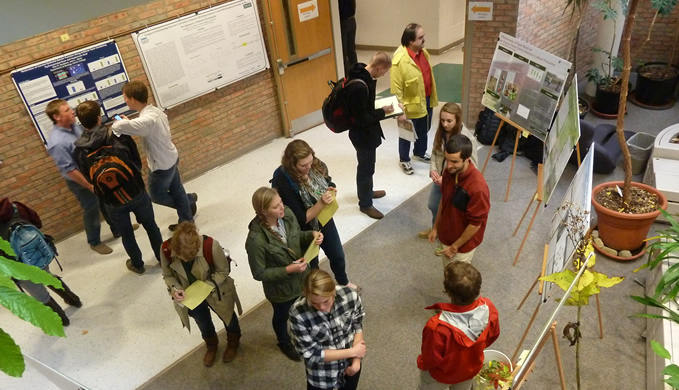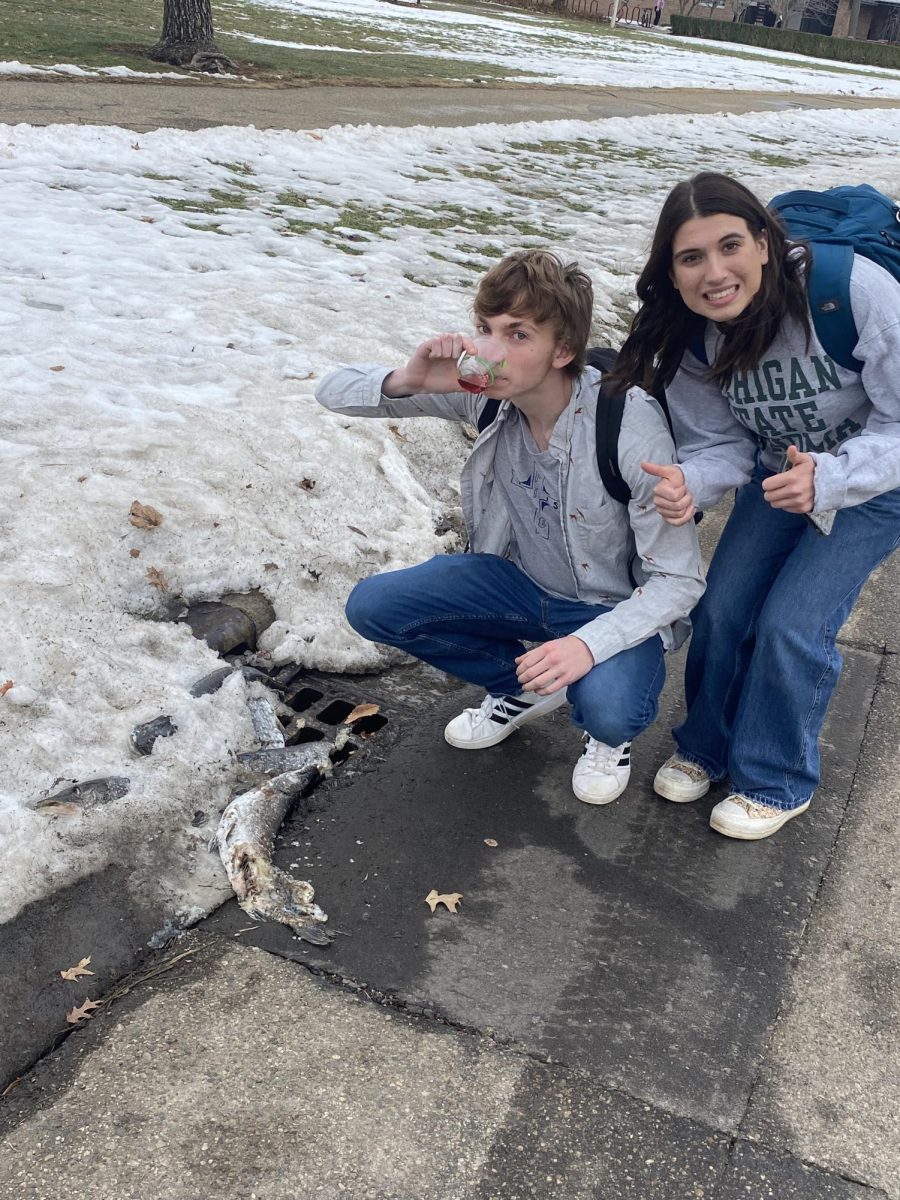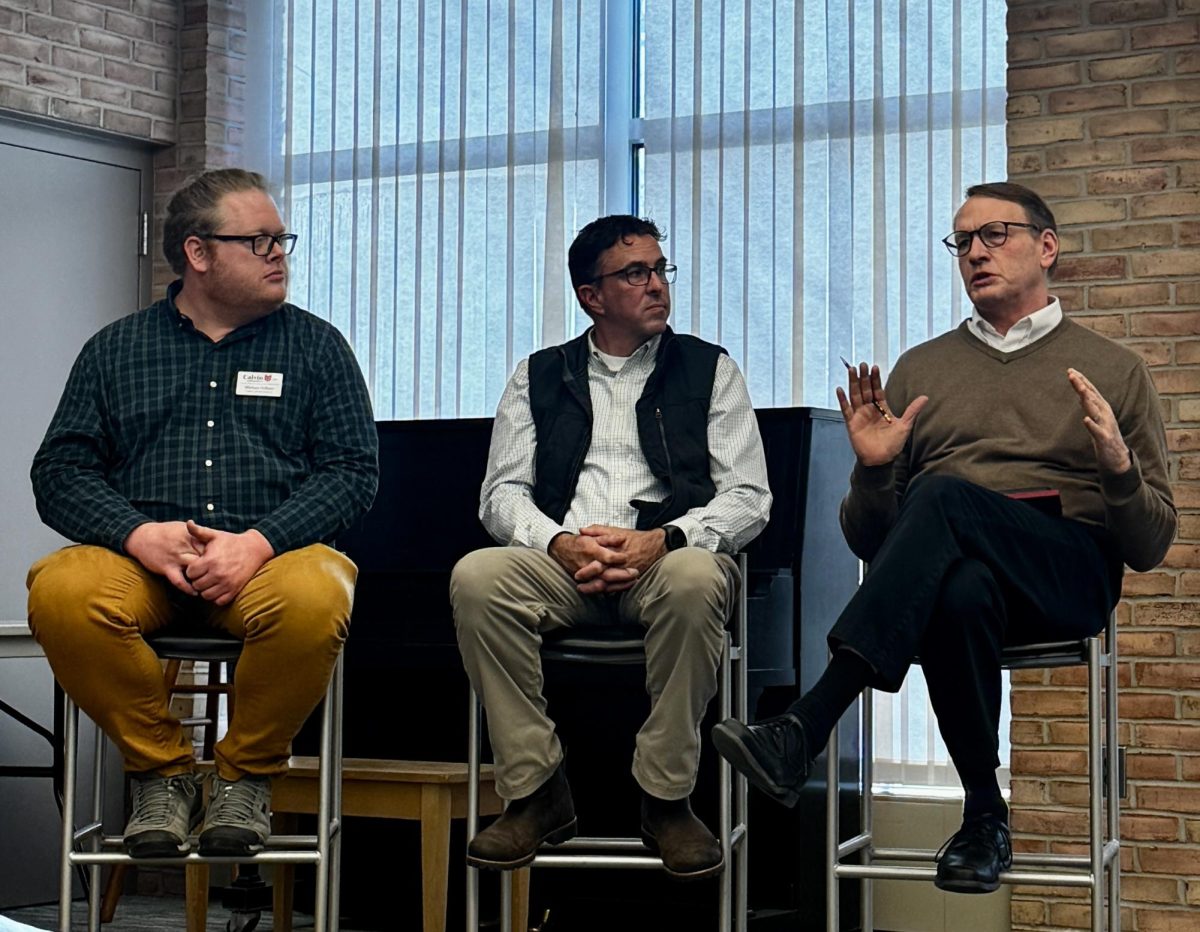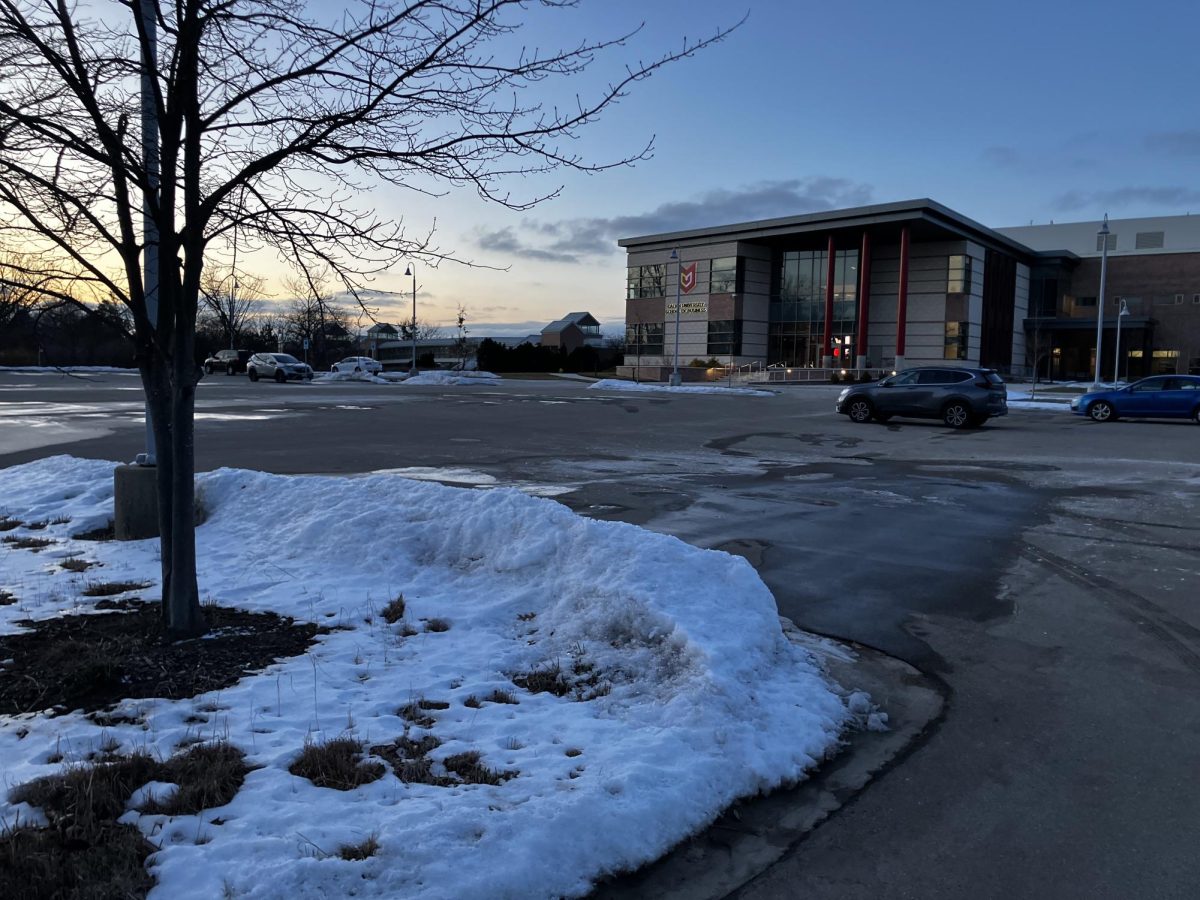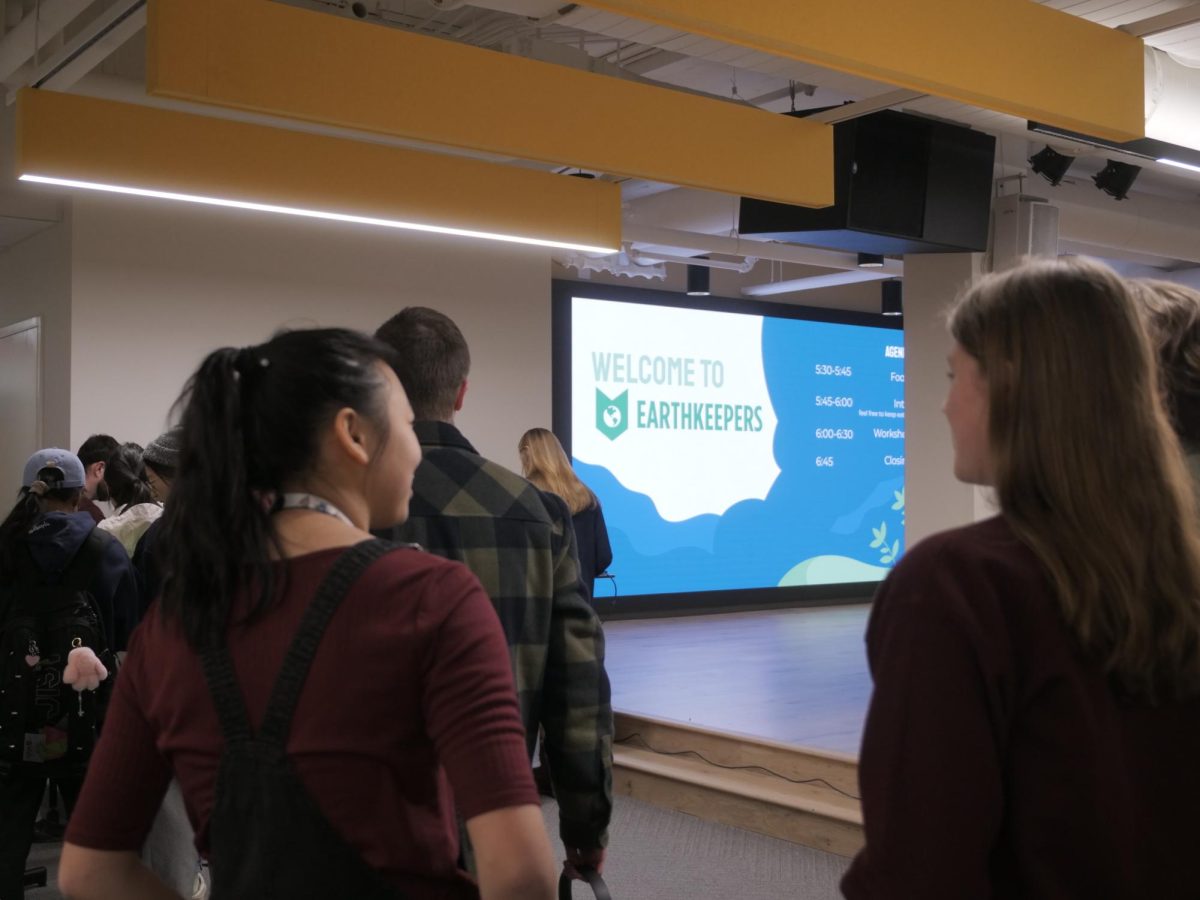Calvin students are experiencing the thrill of seeing their name in published journals. Since 2000, Over 200 students have co-authored publications with a professor in the biochemistry/chemistry department alone.
“Summer research programs have the potential for research papers to be written, so if someone was looking to get published, that would be a good place to start,” said recent graduate student Sheila DeVries, who has collaborated with biology professor Dave Warners on a published article.
“The best way of getting published is to sort of have a summer of doing research,” he said, “and getting experience as to what the research is, how to do it, get some results and develop the initial story. Then, your second summer is coming back to finish up and actually get all the information for that story so you can write it.”
“It’s an awful lot of work to take research done in the summer, that data, and work with them to the point that you have a manuscript,” said Warners. “That’s a whole lot of work.”
“The big overview is that you would come in as a student,” he said, “learn how to do something, learn some concepts and techniques and then seek to understand a specific process using what you learned, and then once you understand that, you would write it.”
After the paper itself has been written, the student collaborates with the professor to edit it and make it ready for publication.
“My model is to let the student take the lead,” said Warners. “The student will write drafts and then give me the drafts to edit. The first few drafts are usually quite bloody with my red pen. We will bounce drafts back and forth usually seven, eight or 10 times before it’s ready to be sent.”
Once the article is submitted, the journal sends it to two or three other professors in the field from different universities to be reviewed. For DeVries, the peer reviewers were an important part of the revision process.
“When we got the article back, all of these peer reviewers had given us so many tips on how to make it better,” said DeVries.
“The process of getting published starts with building credibility,” said Joel Betts, another recent graduate who is working on a paper with Dr. Mahan from the Au Sable Institute.
In addition to giving critiques and suggestions for the manuscript, peer reviews also give a recommendation as to whether the article should be published in the journal.
“Certain journals are hard to get into and other journals are less hard to get into, but they’re all hard to get into,” said Benson.
“It’s a tedious process,” Betts agreed.
“You have to have that commitment to be diligent and organized,” said DeVries. “We ended up not even using all of the measurements we took so you have to be prepared to do extra work.”
In addition to extra work and all the time that gets put in, getting published is not guaranteed when submitting an article.
“Sometimes you can work for two summers and not get published; sometimes you can walk in and be the student that finishes up three projects that were already started and in three months, you’re on paper,” said Benson.
Students and professors alike have listed several benefits of being published.
“Students get a much deeper appreciation of the material that they learn in the classroom,” said Benson. “You might talk about a topic half an hour, an hour at the most, but now, we’re asking you to learn about that concept well and then use that technique and apply it to a cutting edge piece of research.”
“Going through the process of research, writing and peer review has been—or will be—a valuable education experience for me,” agreed Betts. “It’s cool to better understand how the scientific method is carried out from start to finish to produce new knowledge.”
As well as a deeper appreciation of the material, according to Warners, students also gain an appreciation of the work that goes into scientific articles.
“I want them to appreciate how hard it is to get a paper published,” he said. “I think sometimes we read an article and say, ‘Oh, someone just sat down and wrote this,’ but that’s not true. It’s hard work.”
“You learn how to do the research, you collect data, you interpret that data, and then you say, ‘Okay, we’ve got a story to tell,’ so you write the paper,” echoed Benson. “You write the paper and you go through many, many, many iterations to make sure that the story is correct and concise but also tells the story to the correct audience.”
“It teaches them discipline,” added Warners. “If you want something, you have to work hard for it.”
Another benefit is the deepened relationships between the professor and the students participating in the research.
“You hear about these people who can just stop by their professor’s office and have a chat and that’s one thing that happened between [Professor Warners] and I,” said student Sheila DeVries. “I can stop in his office and talk and it’s great!” As well as help on her paper, DeVries says that their relationship has been helpful in figuring out her life after college.
“He’s saying, ‘Hey, have you looked in this place for jobs? I know you’d do really well here because you worked with me on this paper,’ said DeVries. “I also gained a reference from him, which was really nice,” she added.
“Students are learning skills and building a relationship with a professor that can speak towards their abilities in a recommendation letter,” confirmed Benson.
Unlike other undergraduate college programs, Calvin students in the sciences and other departments have a higher chance of co-authoring a publication along with a professor.
“We’re a very collaborative research college,” said DeVries. She elaborated, saying that everyone on a project does similar research.
DeVries offered some advice for students who wish to be published: “Find a professor that’s working on a project that interests you and see if you can help them out with their research.”
Warners also encouraged student research saying, “Definitely seek out research experiences — that’s really valuable but don’t get fixated on the publication aspect because then you miss out on the most important thing, which is the research itself.”
Betts emphasized the learning aspect of publication and the benefits it will contribute to its audience. “I also hope that our paper will contribute new scientific knowledge and understanding to the field of stream ecology so that people can better manage for stream ecosystem health in the future. This is really the ultimate goal of the research.”



